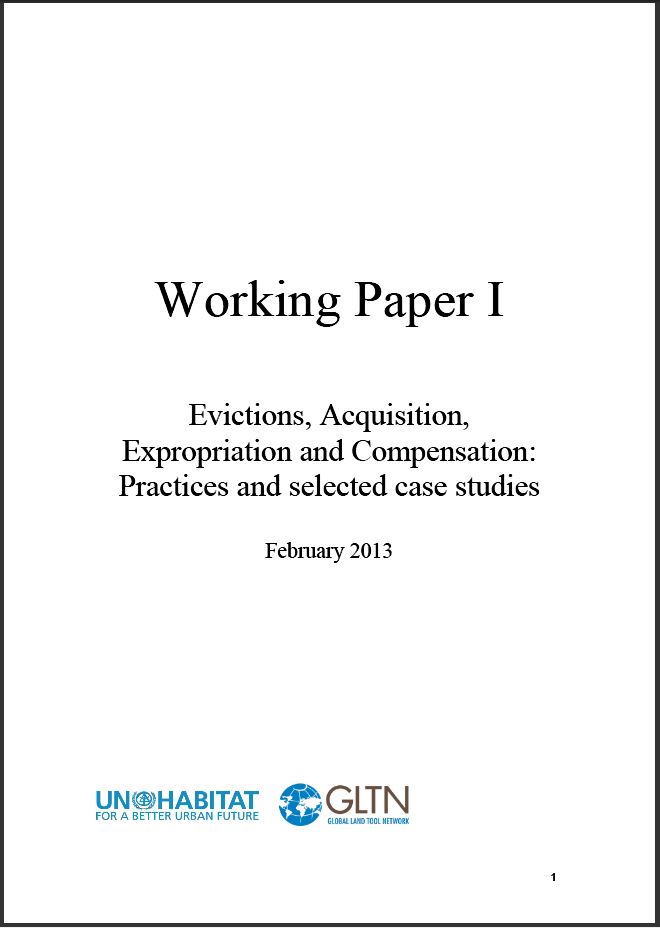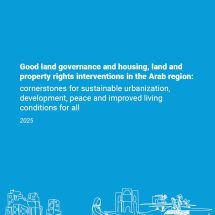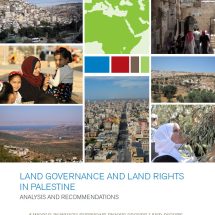 Practices and selected case studies: February 2013
Practices and selected case studies: February 2013
This working paper focuses on urban, development-induced displacements of people and forms part of a larger research synergy on housing rights and security of tenure that UN-Habitat has identified as a priority. This paper complements other studies published by UN-Habitat on related topics, most recently Forced Evictions: Global crisis, global solutions; Losing Your Home: Assessing the impact of eviction; and Monitoring Security of Tenure in Cities: People, land and policies.
Ten case studies are featured from around the world. They illustrate one or more of the practices employed in evictions and clearly demonstrate the variety of immediate causes of evictions depending on context and environment. Each case varies with regard to the consultation and compensation involved, and each highlights the difficulties in disentangling the concepts of eviction, acquisition and expropriation, and contextualizing their relationship.
Some of the case studies illustrate the way in which domestic laws have been applied to enforce an eviction; others focus on international laws, policies and guidelines governing compensation or the manner in which evictions should be carried out. Differences in each country’s approach to the human rights of people who are evicted, as well as the range in the level of violence used to carry out an eviction, are explained.
Finally, some conclusions are presented as a starting point for further discussion and investigation. These should be of particular interest to people affected by evictions and displacements, and by those whose work focuses on improving the rights of evictees and on advocacy, or whose projects and programmes may lead to displacements.
Authors: Maartje van Eerd, Banashree Banerjee












